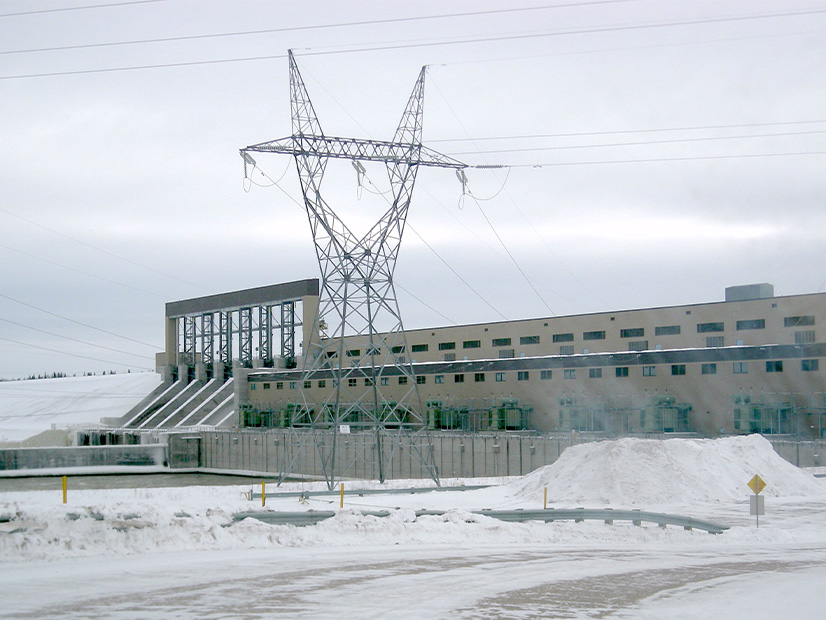
With the 2022 hurricane season in progress and the winter months approaching, NERC and the regional entities signaled their support last week for FERC’s proposal requiring transmission providers to outline plans for assessing the vulnerability of their systems to extreme weather and mitigate any identified risks (RM22-16, AD21-13).
FERC introduced its proposal in June as one of two Notices of Proposed Rulemaking inspired by a technical conference the commission held last year on the impact of climate change and severe weather on the electric grid. (See FERC Approves Extreme Weather Assessment NOPRs.) Commission staff introducing the measure said it was intended to fill a gap in bulk power system awareness, created by the fact that conducting extreme weather vulnerability assessments is currently voluntary and not all BPS stakeholders do so.
The proposal would require transmission providers to submit a one-time assessment to FERC detailing how they:
- establish the scope of their vulnerability assessments;
- develop inputs;
- identify vulnerabilities and determine exposure to extreme weather hazards;
- estimate the cost of weather impacts; and
- develop mitigation measures to address extreme weather risks.
The NOPR does not apply to utilities that already conduct their own assessments, and transmission providers that do not will only be required to do so once.
Assessments Offer Reliability Benefits
In their joint response filed last week in support of the NOPR, NERC and the REs reminded the commission that “extreme weather events, particularly extreme heat and cold conditions, have threatened the reliability of the electric grid multiple times over the past decade.” Moreover, the ERO noted that the grid is becoming “more vulnerable to the effects of extreme weather” as it transitions to weather-dependent sources of generation.
In addition to considering FERC’s own obligations under the Federal Power Act — as noted in the NOPR — NERC and the REs also suggested that the commission take the ERO’s needs into account in its final rulemaking, particularly in light of the potential benefits to NERC’s reliability standard projects and other reliability-related efforts.
“The ERO Enterprise … agrees that the proposed informational filings would increase transparency into current or planned entity planning practices and facilitate enhanced information sharing and coordination, the benefits of which may extend into enhanced system reliability,” the filing said. The authors requested that any information from utilities’ informational filings that the commission deems too sensitive to be released publicly be shared with the ERO on a confidential basis to help its mission of ensuring BPS reliability.
Industry Feedback More Nuanced
Feedback from other stakeholders was generally supportive, though the responses also contained further suggestions for refinements to the NOPR. For example, Xcel Energy questioned whether FERC’s proposed definition of extreme weather vulnerability assessments is needlessly specific and may rule out many potentially useful reviews.
“The current definition … may omit a significant number of evaluations that, while not couched in the language used in the definition, address specific aspects of the impacts of extreme weather on system operations,” Xcel said, noting that many utilities conduct “myriad types of studies” on current conditions and performance challenges and that, depending on a utility’s circumstances, these could touch on severe heat and cold conditions as a matter of course.
“Without clarifying what this means, exactly, the commission is likely to end up [with] a truncated view of the efforts undertaken to ensure the system can withstand an array of extreme weather events,” Xcel continued, asking that FERC be “very prescriptive in identifying the types of studies it is interested in [in order to] protect entities from inadvertently failing to report or under reporting and, conversely, avoid unnecessarily expanding the record with studies of little or no interest to the commission.”
The Edison Electric Institute also registered some misgivings about the commission’s proposal, despite expressing support for the idea of one-time extreme weather assessments. EEI praised FERC for not requiring assessments from entities that already do so, and for not mandating any changes to how utilities perform their assessments. It urged the commission’s final rulemaking to maintain the NOPR’s recognition that different stakeholders face a range of challenges, and to give utilities a high degree of flexibility in how they follow the requirements.
EEI’s doubts about the NOPR centered on the commission’s plans for the information in the one-time reports, noting that while FERC said the reports “will enhance the commission’s understanding” about transmission providers’ risk assessment, the proposal “does not detail how [FERC] plans to utilize the information included in the reports to accomplish these ends.” The institute said the reports “should serve as an informational tool” and “as the basis for further information sharing and coordination” among transmission providers.
Finally, EEI said FERC should allow utilities more time to prepare their reports than the 90 days following the publication of a final rule, as the NOPR proposed. The institute said in light of the time needed to gather the required information and to vet it for public release, FERC should allow at least 120 days for utilities to respond. Further, EEI said that FERC should not seek public comment on the informational reports as planned in the NOPR. The group called this idea “a departure from precedent” that would punish entities for complying.
“Informational reporting, including the one-time report proposed in the NOPR, is inappropriate for public comment because it threatens to turn good-faith and impartial information sharing into a de facto adversarial proceeding in which entities are compelled to defend themselves,” EEI said. “For this reason, the Commission should not move forward with its proposal to require a post-report public comment period.”



